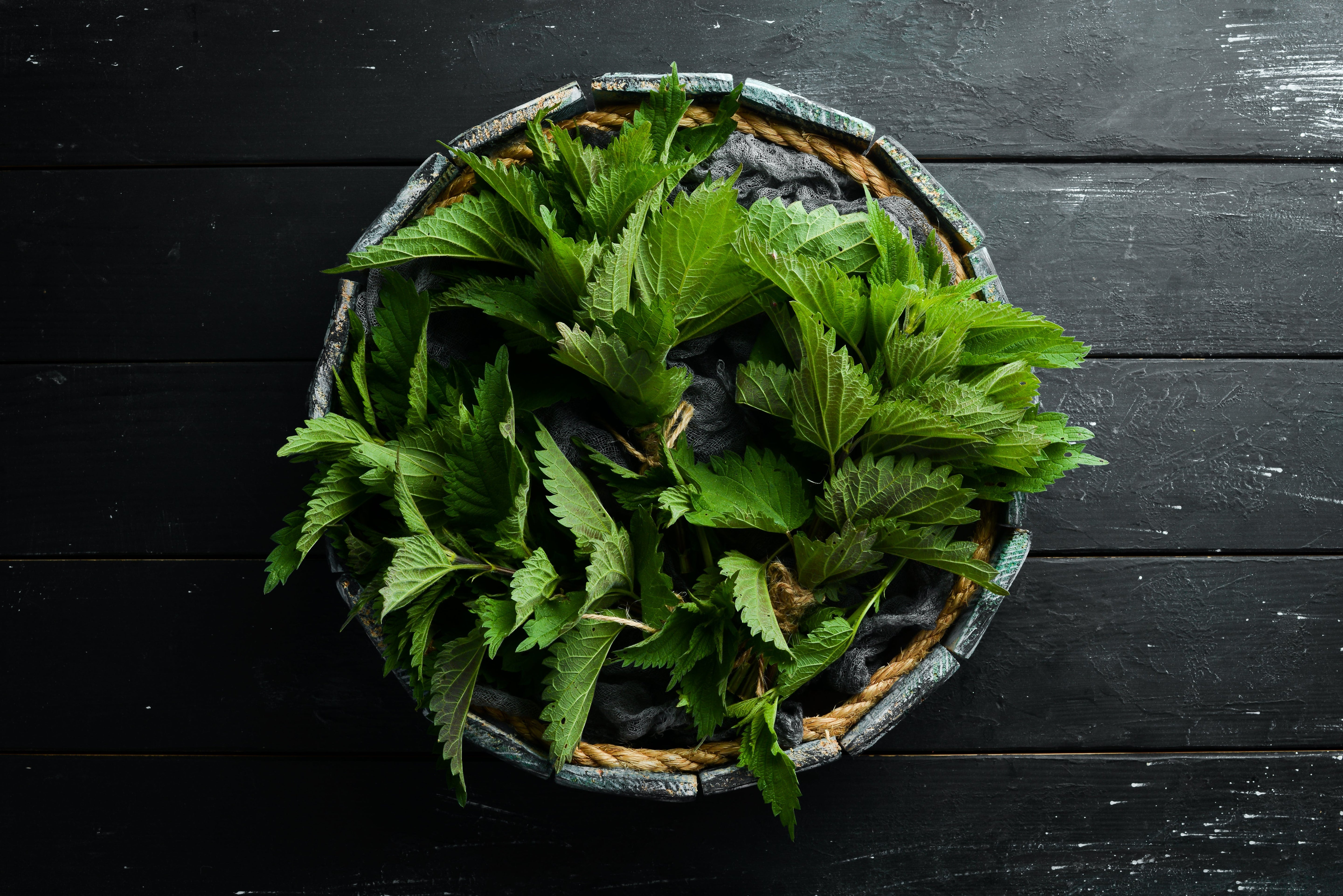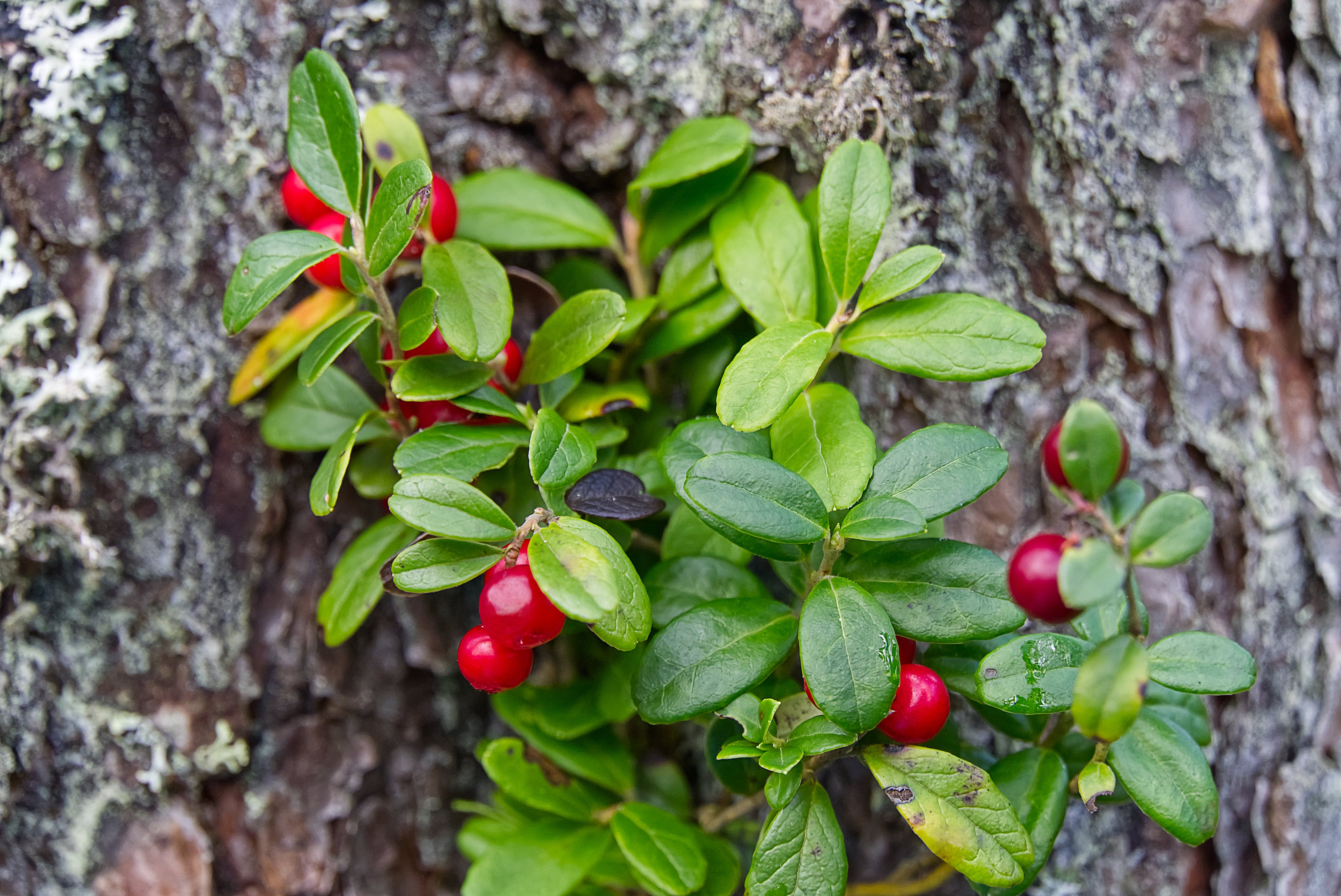A Beginner's Guide To Detoxing With Herbal Teas

A herbal tea is any tea made from brewing the fruit, leaves or roots of a plant. That way, you gain all the natural nutrients found within it from a single cup.
Herbal teas hold countless benefits. In this post, we’ll highlight the best herbal teas for detoxing:
We’ll highlight what each of these teas can do for you shortly. Before that, however, we must understand what is detoxing.
Detoxing is the way we remove toxins, pathogens and waste from our bodies.Whether you’re eating, drinking or even breathing, you're unknowingly (and unintentionally) ingesting harmful substances. When those substances enter our bodies and bloodstream, they can cause sickness.
Herbal teas offer the right mix of nutrients to detox the body of mucus and urine, among other forms of waste. More health benefits of detoxing include:
- Encourages weight loss
- Cleanses the bloodstream
- Removes waste from the body
- Leaves you feeling more rejuvenated
For natural ways to detox, look no further than these herbal blend recommendations. Let’s start off with the Uva Ursi plant.
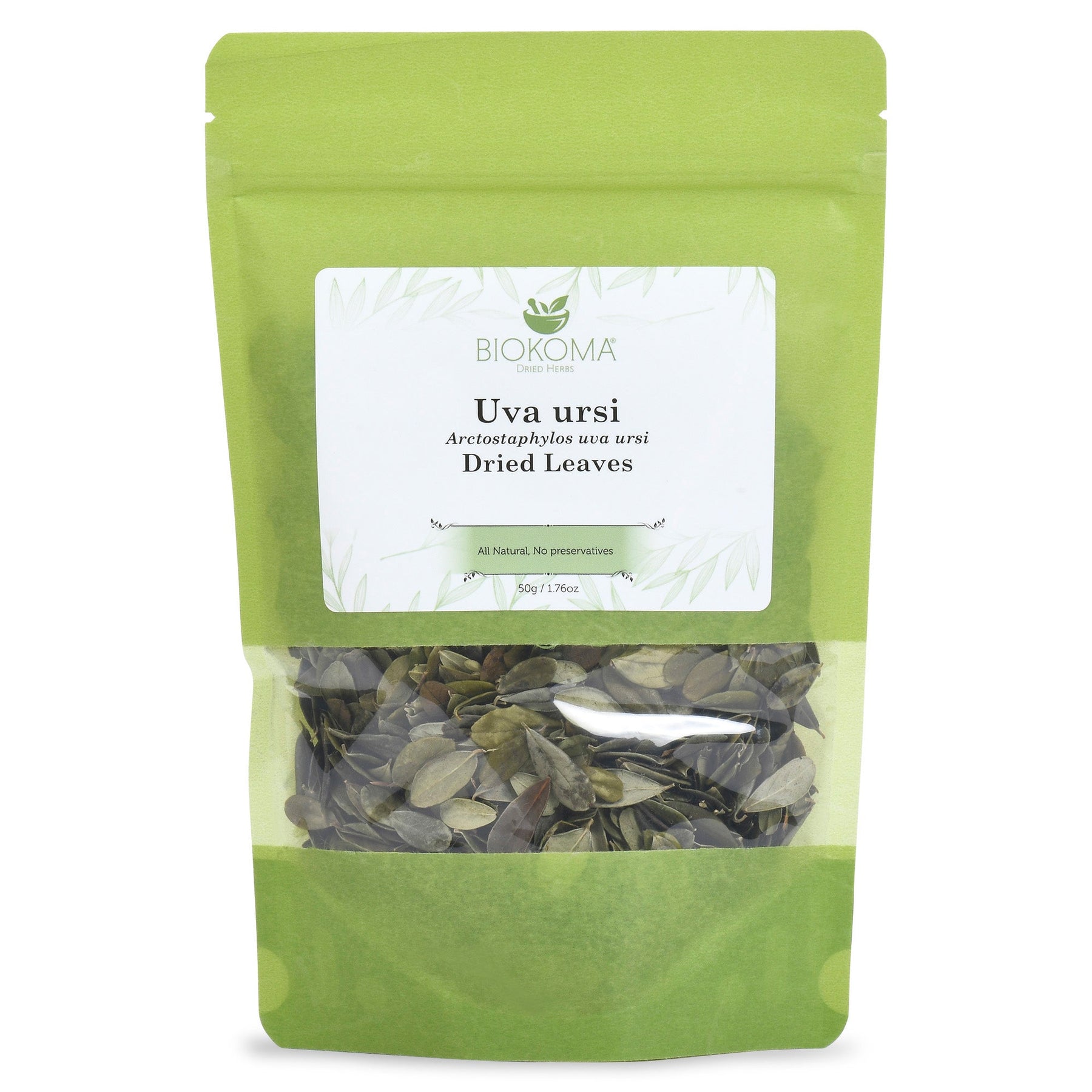
Photo of Biokoma’s Uva Ursi (Arctostaphylos uva-ursi) herbal tea
#1: Uva Ursi
The uva ursi plant (or Arctostaphylos uva-ursi) is mainly found in Europe and North America. Commonly called Bearberry, this plant features red blossoms and matching berries---which bears are known to love. Along with that, uva ursi also carries a wide array of benefits for humans.
Returning to that definition from earlier, detoxing can be defined as removing waste from the body. That includes waste linked to diseases and infections - As a result of that, consuming this herbal tea can cleanse your body.
Uva ursi acts as a diuretic: That is, any medicine that increases the production of urine. This is especially useful when detoxing!
In addition to this, one study has shown that uva ursi may relieve recurring urinary tract infections (UTIs).
A urinary tract infection is caused when bacteria enters the urethra and then the urinary tract. An estimated 10 in 25 women---and 3 in 25---men will experience symptoms of a UTI during their lifetime.
This 2019 German study featured women with ‘suspected uncomplicated UTIs’. Over the course of five days, each participant received uva ursi extract in an attempt to see if this would reduce their need for antibiotics against UTI symptoms.
Though some complications were reported, the findings proved that consuming uva ursi reduced antibiotic treatment among the participants. However, more research is needed to confirm the link between uva ursi and bladder infections.
The hydroquinones and tannins are responsible for the antiseptic and antimicrobial properties of the uva ursi plant - Both of which make it a viable option for flushing out other forms of bacteria from the body.
While it is better known for its detoxing properties, uva ursi uses also include treating cystitis, urethritis, kidney stones, bladder stones and constipation.

#2: Cistus Incanus
Cistus incanus is a herb best known for supporting the immune system. This plant was nicknamed ‘rock rose’ because of its glaring similarities to wild roses and the spots where it tends to grow (ie: rocky soil).
Folk medicine used this herbal tea to treat diarrhea, fever and skin conditions. What makes cistus incanus an ideal detoxing herb, however, are the polyphenols found within its leaves.
Polyphenols are plant-based compounds that are recognized to boost immunity. When consumed, they reduce potential damage to the tissues within the body, thus preventing inflammation, heart disease and cancer.
Some studies have confirmed that polyphenols hold diuretic benefits. As a result, teas containing polyphenols increase the amount of fluid that passes through the kidneys, which effectively flushes out salt deposits. Polyphenols are also known to carry some antioxidant and anti-inflammatory benefits.
Besides flushing out toxins, encouraging weight loss is a benefit of detoxing. Catechin, another chemical property found in cistus tea, does just that!
Catechins are compounds with strong antioxidant abilities. Cocoa, berries and tea tend to have high catechin content. Along with weight loss, other benefits of catechins include increasing energy and speeding up metabolism.
Over the course of 12 weeks, a Japanese study confirmed that catechins reduced body fat when consumed in a herbal tea daily. Researchers believe that continued use can reduce the risk of obesity along with common cancers.
Studies often put emphasis on the polyphenol and catechin chemical properties. However, brewing a cup of cistus incanus can yield a variety of other uses. This list is not exhaustive in showing the many benefits of cistus incanus.
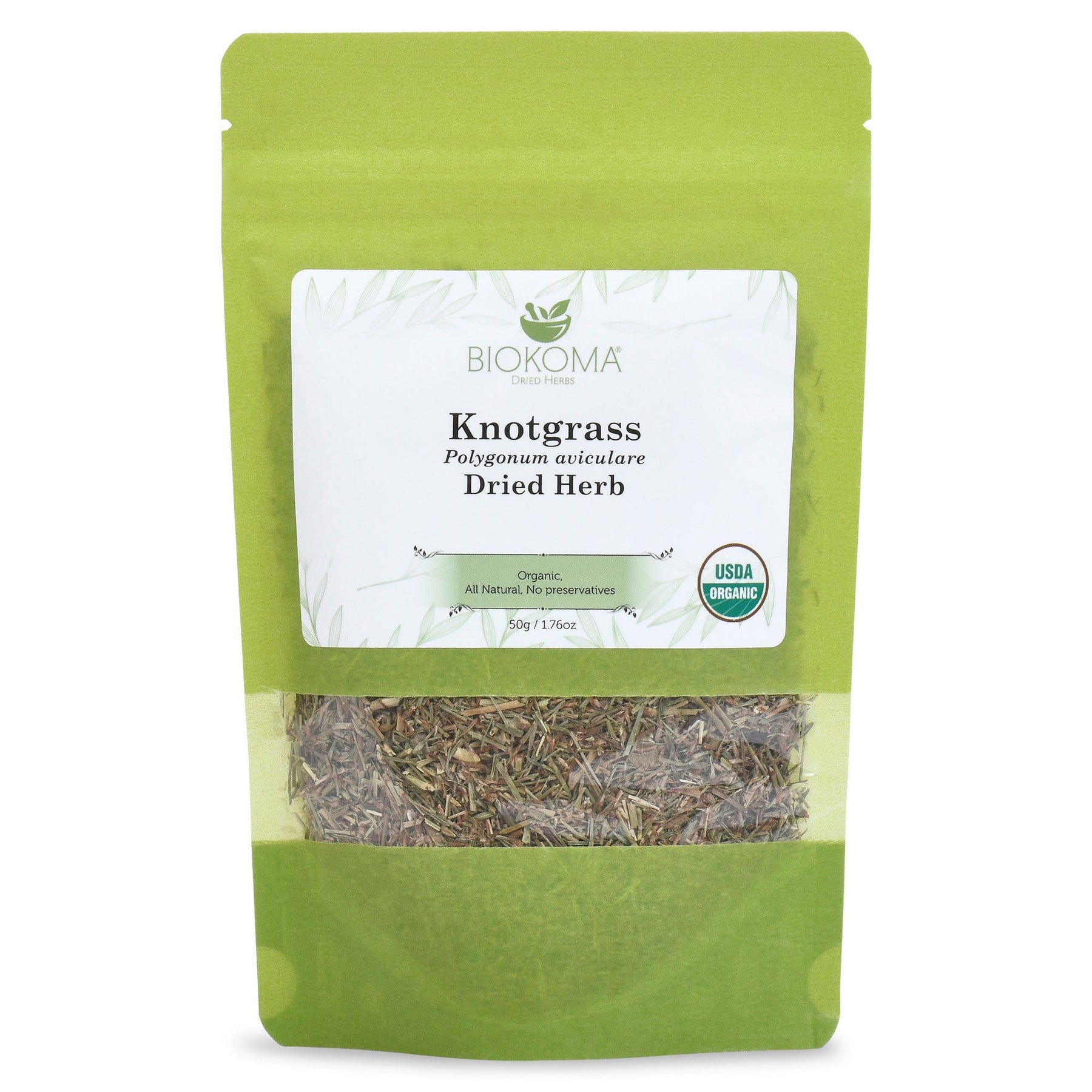
#3: Knotgrass
This plant goes by countless names, including birdweed, pigweed, lowgrass and prostrate knotweed. Whatever you call Polygonum aviculare, the knotgrass plant is a powerhouse of benefits for the body.
A popular benefit of knotgrass comes from its diuretic properties: Cleansing the kidneys.
Like mucus and salt, kidney stones are another example of what waste can do if left within the body for too long. Kidney stones are harmful crystals formed from high levels of salt and/or other minerals. They are also the culprit behind some painful urinary tract conditions.
Fortunately, knotgrass is a great natural remedy for kidney stones!
Consuming knotgrass helped to relieve kidney stones in rats in one study. More research is needed in this area on its effectiveness for humans, though. However, it’s a step in the right direction to unlocking more uses of knotgrass.
While we often focus on detoxing waste from our bodies, it is just as important to remove existing parasites, too. Flatworms, for example, can cause abdominal pain, loss of appetite and bloody stool.
Knotgrass makes for a great anthelmintic - That is, a substance that specifically targets parasitic worms and the harm they bring with them. Detoxing the body of these parasites also leads to reducing the effects of any associated sickness.
Using knotgrass as an expectorant is another common traditional use of the medicine. When taken by mouth, the tea reportedly treats congestion, coughs, sore throat and other symptoms of the common cold.
In doing so, knotgrass tea removes the mucus from our nasal passages and encourages better breathing!
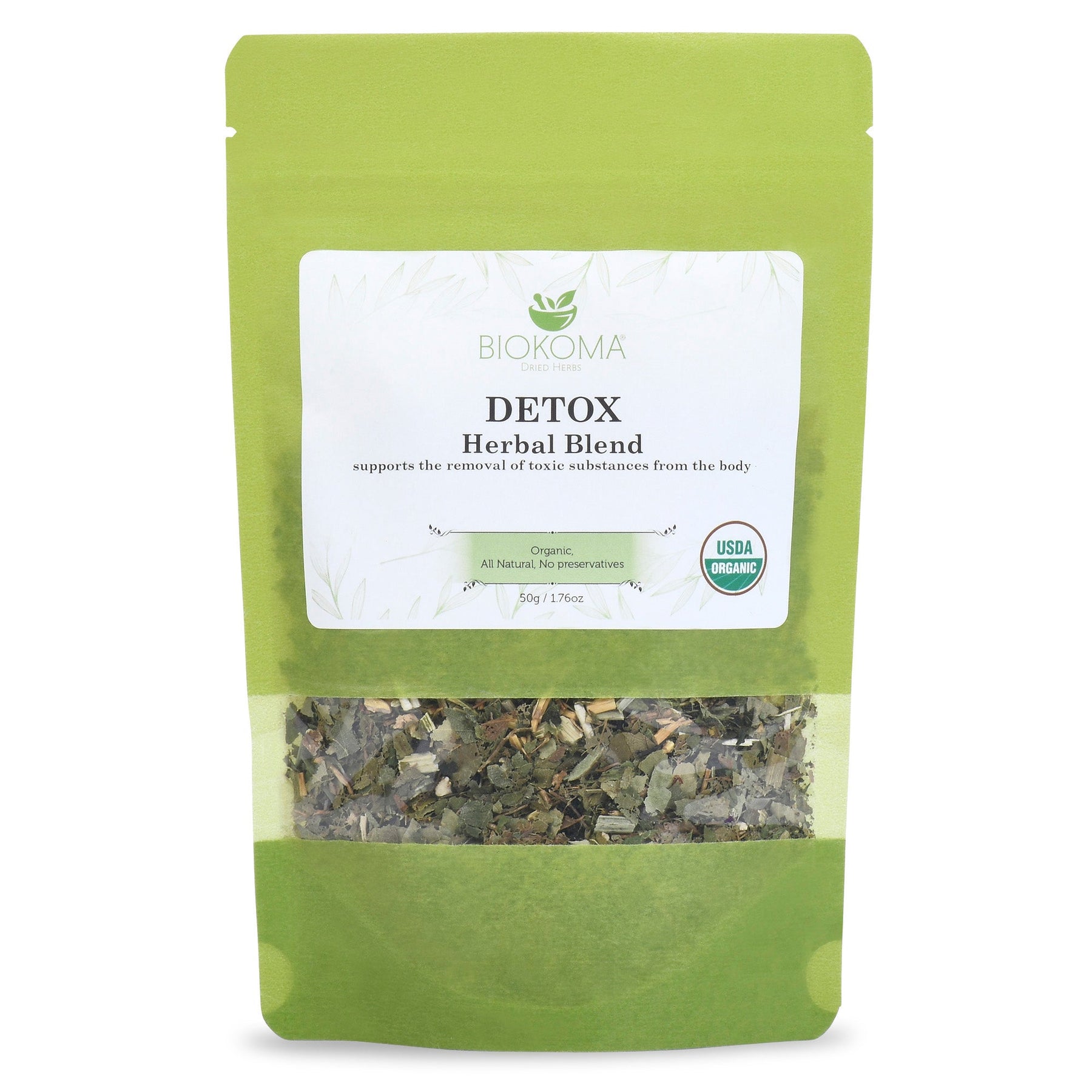
#4: Detox Organic Blend
Detoxing the all-natural way just requires an assortment of the right herbs.
Blending multiple detox herbal teas into one makes it easier to brew a single cup of tea. Now, what if you could combine that infusion with a colon cleanse tea and a liver cleanse tea?
The Detox Organic Blend ticks all the right boxes for both first-timers and experienced users. The ingredients found within each package make it one of the best detox tea on the market! See for yourself below.
Nettle Leaves:
Best known for their diuretic properties, nettle leaves make for a reliable detoxing tea due to its anti-inflammatory, antibacterial, antifungal and astringent properties. Nettle leaves target kidney health.
Chicory Plant:
Some sources highlight chicory root as a liver cleanse - This plant improves conditions internally and prevents cell damage on the liver. There are also some reported uses of chicory root as a laxative.
Dandelion Root:
Similar to chicory root, dandelion root has a reputation of detoxifying the liver. Along with cleansing the liver, it also targets kidneys as a potent diuretic. Dandelion root holds antioxidant properties.
Bilberry Leaves:
One of the traditional uses of bilberry leaves is addressing urinary problems, which make it another viable detoxing option. Consuming bilberry leaves reveals its anti-inflammatory and diuretic effects.
Biokoma’s Detox Organic Blend doubles as a follow-up treatment for certain medicines and food poisoning aftermath. Combined with these ingredients are a myriad of other essential detoxing herbs. This herbal blend was made to clean, purge and heal the body.
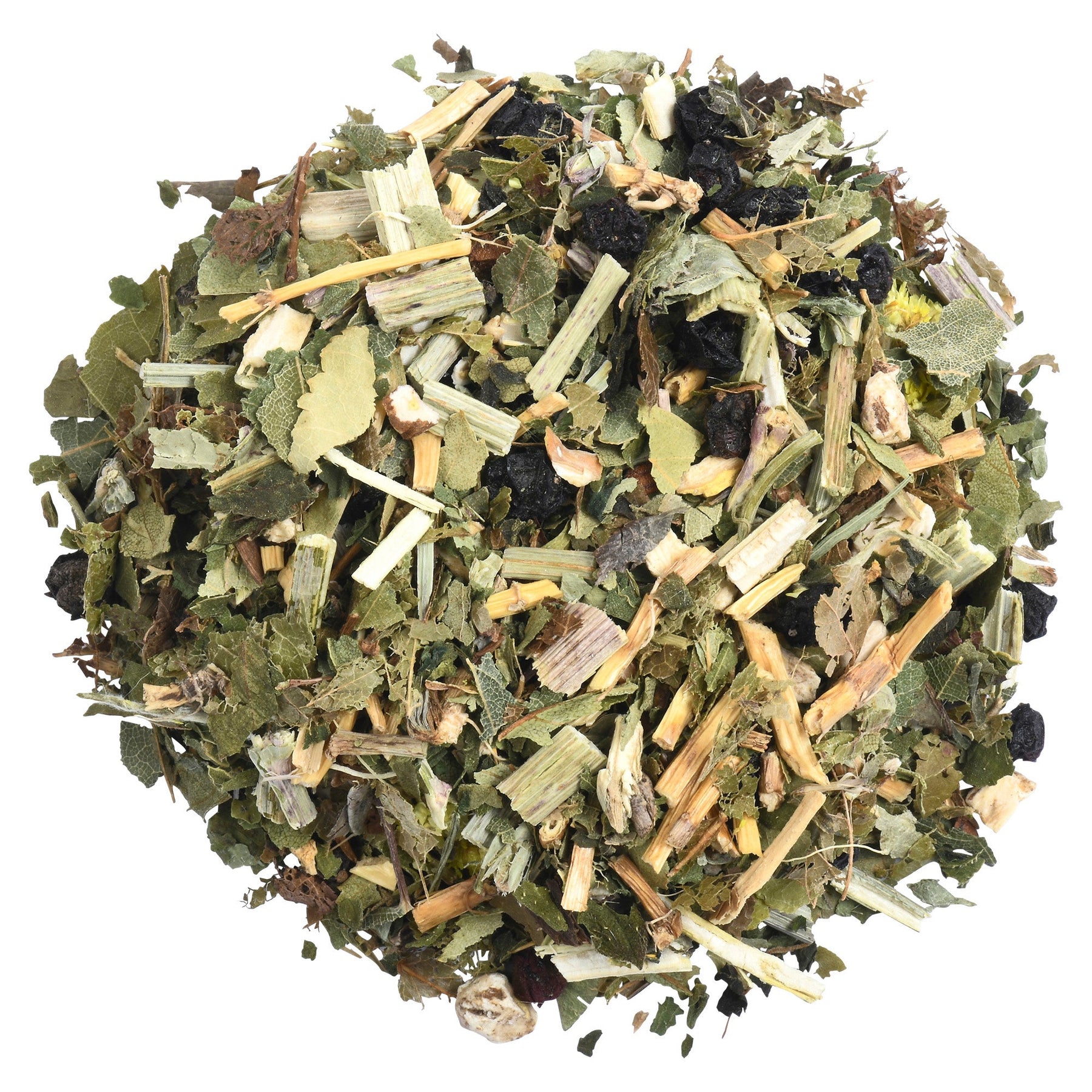
Photo of Biokoma’s Detox Organic Blend (herbal tea)
What Herbal Tea Detox Is Right For You?
Detoxes offer another way of removing waste from the body. Some benefits of detoxing are weight reduction, cleansing the bloodstream and feeling rejuvenated once it’s through!
To recap, here are our recommendations for detox tea cleanses:
Uva Ursi
Cistus Incanus
Knotgrass
Detox Organic Blend
Studies have confirmed that Uva Ursi reduces bladder infections and other urinary problems. A cup of uva ursi tea per day is sufficient in reaping its detoxing benefits. Consider proving us right with Biokoma’s Uva ursi (Arctostaphylos uva ursi) Dried Leaves 50g.
The chemical properties within the Cistus Incanus plant are crucial to detoxing, specifically its diuretic capability and weight reduction. Claim our exclusive Rock Rose (Cistus incanus) Organic Dried Leaves package to tap into its potent antioxidants.
Not many herbs can claim to eliminate parasites from the body, but the Knotgrass plant can! Knotgrass (Polygonum aviculare) Organic Dried Herb also detoxes other forms of waste from the body, namely kidney stones and excess mucus!
Made from a variety of detoxing herbs, Biokoma’s Detox Organic Blend is a go-to for those seeking the most benefits from a single cup. From diuretic herbs to mild laxatives, this blend could hold exactly what you need in a detox.
We can’t stress enough how beginner-friendly these herbal detox teas are! Visit the link of your choice to product pages to learn more about each herb.
Related Reading: How Does Nettle Leaf Tea Help With Detoxing?
FDA DISCLAIMER
These statements have not been evaluated by the FDA. These products are not intended to diagnose, treat, cure or prevent any disease. No known precautions. We recommend that you consult with a qualified healthcare practitioner before using herbal products, particularly if you are pregnant, nursing, or on any medications.
REFERENCES
Uva Ursi:
https://www.clinicalmicrobiologyandinfection.com/article/S1198-743X(21)00280-9/fulltext
https://www.ncbi.nlm.nih.gov/books/NBK556475/
https://examine.com/supplements/uva-ursi/#dosage-information
Cistus Incanus:
https://www.sciencedirect.com/science/article/abs/pii/S0753332218340484
https://pubmed.ncbi.nlm.nih.gov/15640470/
https://www.ncbi.nlm.nih.gov/pmc/articles/PMC8277009/
Knotgrass:
https://www.healthbenefitstimes.com/knotgrass/
Detox Blend:
https://www.biokoma.com/blogs/blog/how-does-nettle-leaf-tea-help-with-detoxing
https://www.webmd.com/vitamins/ai/ingredientmono-92/chicory#
https://www.mountsinai.org/health-library/herb/dandelion#
https://www.urmc.rochester.edu/encyclopedia/content.aspx?contenttypeid=19&contentid=bilberry#





